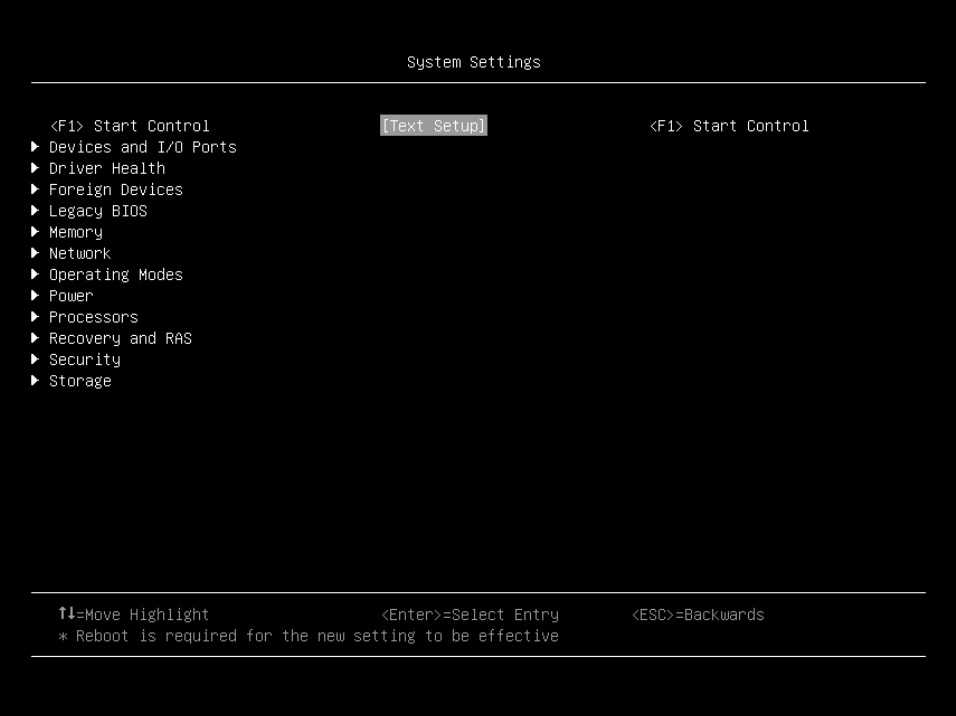System setting
Select System Settings and press Enter. Then the following window is displayed:

SAS/SATA drives or NVMe drives connected to a storage controller will be displayed in the storage controller submenu: .
- NVMe drives connected to the system without raid controller (sometimes using a retimer) will be displayed in one of the following pages:
| Item | Options | Description |
| Start Control |
| Controls the tools that are started using the F1 key or equivalent IPMI command.
|
| Devices and I/O Ports | N/A | Display onboard devices and I/O port options. |
| Driver Health | N/A | View the health of the controllers in the system as reported by their corresponding drivers. |
| Foreign Devices | N/A | View a list of foreign devices, including unclassified devices, video devices, input devices, onboard devices, and other devices. |
| Intel Optane DCPMMs* | N/A | View and configure Intel Optane DCPMMs. |
| Legacy BIOS | N/A | Configure system UEFI firmware execution environment preferences for supporting legacy OS and legacy Option ROM. |
| Memory | N/A | Display and provide options to change the memory settings. |
| Network | N/A | Display network devices and network related settings. |
| Operating Modes | N/A | Select the operating mode based on your preference. Note Power savings and performance are also highly dependent on hardware configuration and the software running on the system. |
| Power | N/A | Configure power scheme options. |
| Processors | N/A | Display and provide options to change the processor settings. |
| Recovery and RAS | N/A | Configure recovery policies and advanced reliability, availability, and serviceability settings. |
| Security | N/A | Configure system security settings. |
| Storage | N/A | Manage storage adapter options. Some systems may use planar devices and can be configured under “Devices and I/O Ports”. |
SD530
SD650
SN550
SN850
SR570
SR590
SR630
SR650
SR850
SR860
SR950